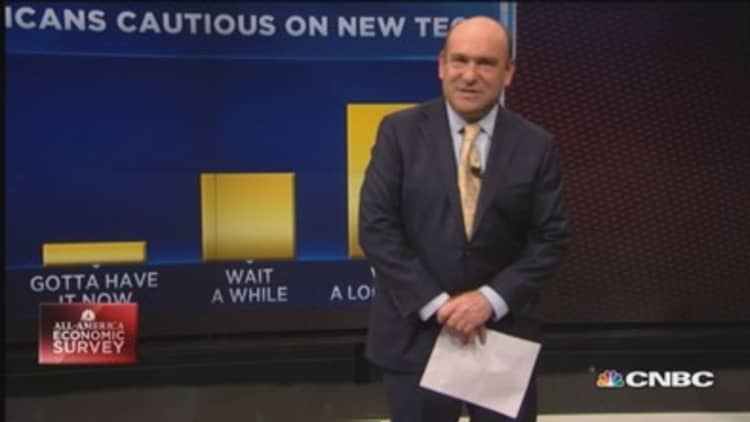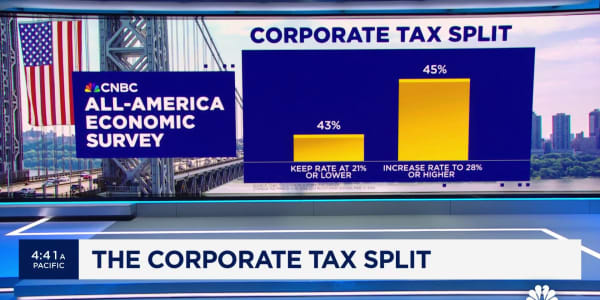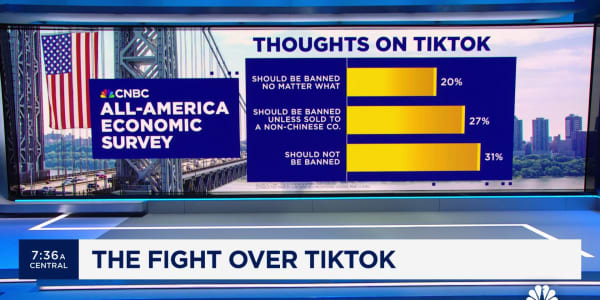
A surprising number of lower-income U.S. workers are spooked by technology.
Among workers making less than $30,000 per year, 25 percent report they are concerned their job could be replaced by technology in the next five years, according to CNBC's latest All-America Economic Survey released on Tuesday. Only 4 percent of the wealthiest Americans, earners above $100,000, share the same concern.
When it comes to technological fear, the nation also splits along educational lines: one fifth of those with a high school degree or less are afraid of losing their job to a robot. Only 6 percent of post-grads are concerned.
The CNBC poll highlights Americans' complex relationship with technology, with 52 percent saying a growing reliance on technology is generally bad as people become too dependent on it and life will get too complicated. In a similar question asked by Pew Research in 1999, only 39 percent believed this was the case. Income and education are again key factors with the least-educated and poorest Americans most concerned about technological dependence.
Despite these drawbacks, 55 percent of respondents say a growing reliance on technology is net positive for the economy because it means products and services can be made more efficiently and sold at lower prices to consumers.
Read More Americans' view on economy reaches 8-year highs
Americans' acceptance of technology in the workplace might be explained by a more efficient work day; 59 percent say the Internet and technology has made them more productive at work. This compares to just 46 percent in a similar survey conducted in 2014 by the Pew Internet and American Life Project Poll.
But greater workforce productivity from technology has not translated into higher wages for most Americans. Of the 59 percent who report being more productive, only 35 percent say their wages have increased. Meanwhile, 61 percent say their wages have stayed about the same, reflecting an unusual period of wage stagnation despite greater worker productivity. Working-class Americans and earners who make between $30,000 and $50,000 are among those most likely to say their wages have stagnated.
Another bifurcation in Americans' relationship with technology comes with early adapters of new tech products. A small seven percent of Americans count themselves among the first to buy new gadgets, such as computers, cell phones, tablets and apps. The poll found that 11 percent of men ages 18 to 49 are so-called early adopters, compared to just 5 percent of women in that age group.
Read More Economy's gasoline bonus finally being put to use
Meanwhile, 53 percent of Americans prefer to "wait a long while" until technology is proven before buying. Americans aged 50 to 64 and earners who make between $50,000 and $75,000 are among those most likely to delay purchases until technologies are established.
One thing Americans agree on: Tech is moving fast. Seventy percent of respondents say technology has advanced farther than they expected five years ago, and only 9 percent say it has not advanced as far as they predicted.
CNBC's All-America Economic Survey was conducted between March 26 and 29 by Hart Research Associates and Public Opinion Strategies. It incorporates answers from 800 respondents around the country with a margin of error of 3.5 percent.





